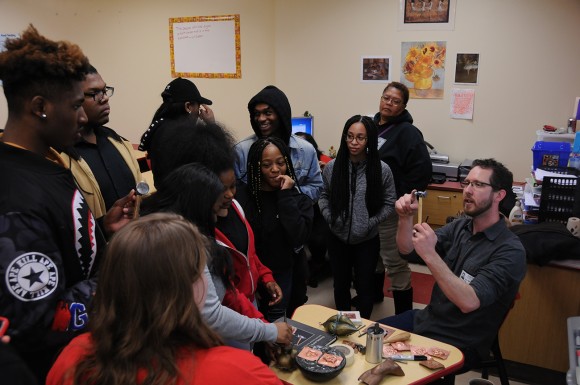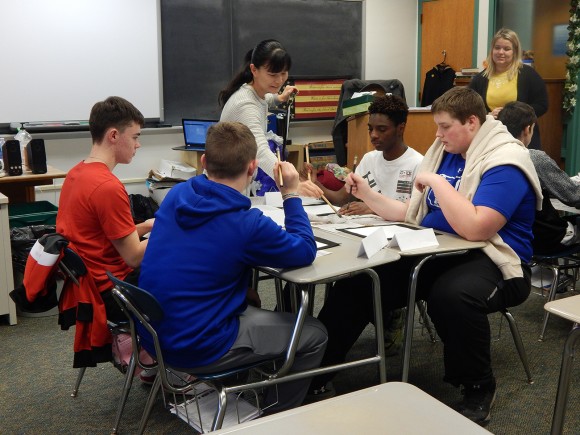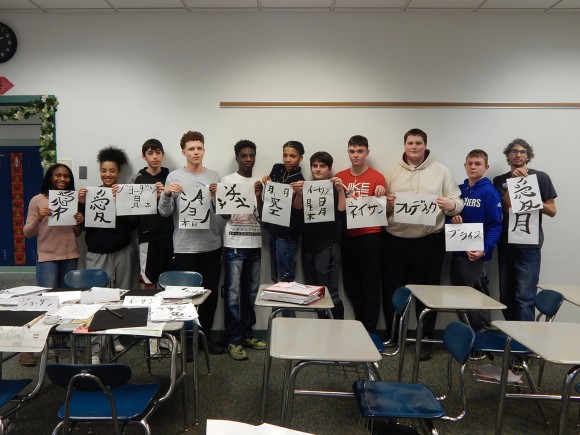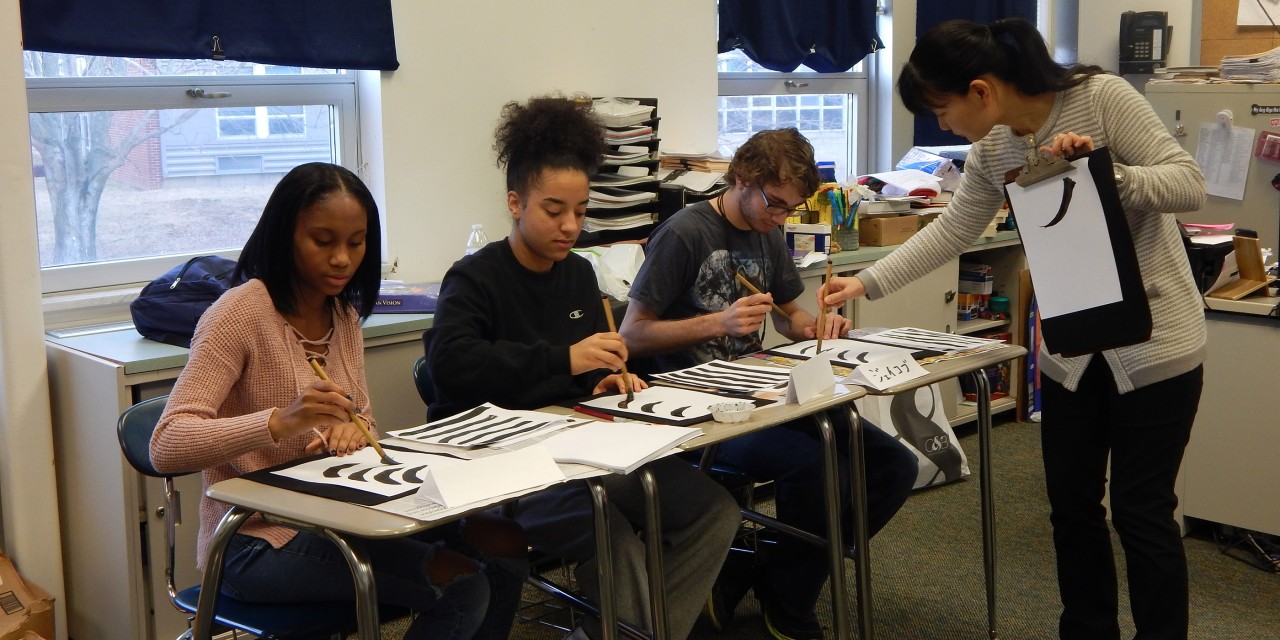In the Western Pennsylvania towns of Aliquippa and New Castle, faculty and undergraduate students from Slippery Rock University of Pennsylvania are facilitating university-style humanities courses at local high schools. These courses build awareness of the benefits of studying the humanities among students who might not otherwise have access to humanities programming.
Video introducing the Humanities Ladder Program. Video courtesy of the Stone House Center for Public Humanities at Slippery Rock University of Pennsylvania.
The Humanities Ladder Program is creating opportunities for these high school students by introducing them to pedagogical and cultural aspects of higher education, Project Director Aaron Cowan explains.
“The project really is trying to address a couple of key social problems. One of those is that the statistics on the graduation rates for first generation low income and minority college students are very sobering,” Cowan notes. “A lot of the research suggests that it’s not necessarily always about money and definitely not necessarily about academic ability; a lot of these students have gotten scholarships and grants and that sort of thing, but that there’s this kind of a specific issue of culture, of feeling uncomfortable.”
The initiative is inspired by the Clemente Course in the Humanities’ approach and overall philosophy. The Clemente Course in the Humanities offers college-level humanities courses to people in economic distress. “We’ve adapted the assessment that we do from the Clemente Course. They do a reflective survey and interviews with [participating] students. We do the same thing,” Cowan says. “But I think it drew on the Clemente Course on a much deeper level in terms of overall philosophy: the very democratic idea that the humanities aren’t luxuries and that they are essential resources for a good life and for democratic society.” Students in these culturally and economically isolated communities are often encouraged to study other disciplines, Cowan continues. The Humanities Ladder Program emphasizes the utility and applicability of the humanities to everyday life, Cowan says: “How do we begin to apply questions about ethics or about justice to our actual community? How would that apply within the town of Aliquippa or the town of New Castle?”
These questions drive sessions, which are led by a Slippery Rock University faculty member with an undergraduate as a student mentor. Undergraduate students were not initially involved, Cowan explains. “What we realized is we were missing an opportunity for our undergraduate students to gain experience and to learn about the education system.”



The roles the undergraduate students play vary by instructor, Cowan continues. “Very often when I’ve taught in the program, my student mentor has been a really a nice bridge,” Cowan says. “High school students will ask questions of the student mentor that they wouldn’t ask of me if we have a discussion going, because they aren’t sure if they’re supposed to ask a college professor that. In some of the sessions, when we’ve covered the concepts that we want to cover, the high school students will want to know what college life is like. They want to know as much about the student’s experience as they do about the humanities discipline and the lesson that we’re doing for the day.”
Students have responded well to the challenge of a university-style discussion. The stakes are low, in part, Cowan suggests, because the Humanities Ladder sessions are not for credit. “The students in the high school seem much freer and more willing to speak their mind and respond to questions, often just sort of cut through a lot of the safe answers and see the big picture or the things that really mattered in the little text.” These are skills that will help in life, in college and after, Cowan concludes. “That’s how you learn. It was very fun to work with high school students in that way.”
